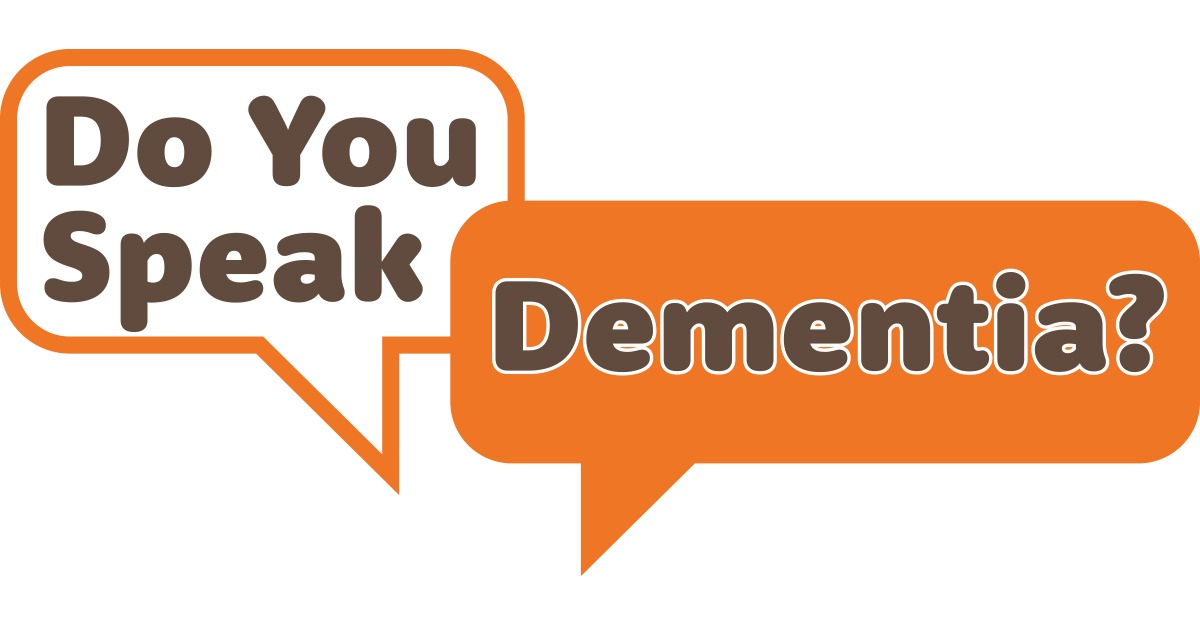Have you ever traveled to another place or country where you didn’t speak the language? If so, how did you communicate? Did you use hand gestures, facial expressions or rely on body language to convey your message? Or did you simply speak louder in your native language, hoping that miraculously someone would understand you at a higher decibel?
It’s a Challenge
It’s tough to communicate effectively with others when you don’t speak the same language, isn’t it?
For those folks living with Dementia; in time, Dementia will impact their ability to communicate with us in the traditional ways. They may speak in words we don’t understand. They may make noises instead or lose the ability to speak entirely. Therefore, whether you are a professional caregiver or a valued family member providing care support, it’s important for you to learn how to speak ‘Dementia’.
Learning to Speak ‘Dementia’
There are some key attributes all Dementia caregivers must have, to aide their success in learning how to communicate effectively with someone living with Dementia.
- BE KIND – in Dementia caregiving, it’s better to be kind than be right! By accepting the change-of-condition of those in your care, it’s easier to adapt a softer technique that includes listening more with an empathetic ear (and heart)
- DON’T RUSH – it’s never a good idea to rush someone living with Dementia. And, it’s especially unwise to speak quickly while multi-tasking in an over-stimulated environment. All of these stressors combined can have significant negative impact on those with Dementia that fractures any chance of a successful communication encounter.
- KNOW YOUR PERSON – In a professional setting, it’s advised that all care partners are given ample information about each person in their care. Who they were and who they are now. Past and present hobbies, likes/dislikes, preferences, etc. You can never have ENOUGH information about those you serve. So get as much as you can, because it will have an immense impact during the ebb & flow of Dementia caregiving.
Speaking ‘Dementia’ Means
- Be patient, comforting and reassuring
- Pay attention. Nod your head, smile & maintain eye contact during your exchange
It Doesn’t Mean
- Arguing, disagreeing or correcting
- Being bossy or condescending
- Speaking in a childish tone or using ‘baby-talk’
- Speaking about your person while standing over them or in front of them (#notcool)
When You Know Them Well & Are Accepting
You can understand what they are saying even when you don’t actually understand their words.
- You can tell if they are in pain; by the way they walk, move or by the expression on their face
- You can tell if they are happy; when they laugh and smile
- You can tell if they are frustrated; by their actions and reactions
Even if the person in your care cannot speak in full sentences anymore or may mispronounce things or even speak in a ‘jumbled’ non-recognizable style; you pay attention to their tone, body language and facial expressions and you respond with kind and comforting communication.
Focus on the Feeling
It’s up to YOU to let them know you understand. When you focus on the feeling and/or the manner in which they are communicating, you can keep the conversation going thru encouraging words and phrases like: “Thanks for letting me know” or “I appreciate you sharing that.”
Remember to be patient, kind, and gentle to ease their anxiety or soothe their confusion. Keep in mind, that to become a championship-level ‘Dementia’ communicator you must excel in being kind instead of being right!



